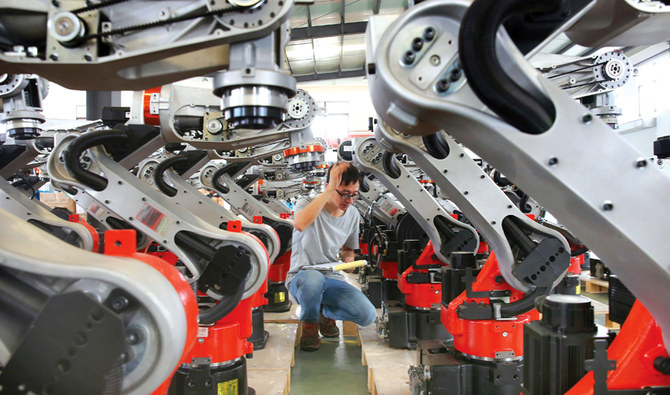BEIJING: US and Chinese officials will restart trade talks this week, but any agreement between the two is expected to be a superficial fix.
The trade war has hardened into a political and ideological battle that runs far deeper than tariffs, experts in both countries say.
China’s Communist Party (CCP) will not budge on US demands to fundamentally change the way it runs the economy, while the US will not backtrack on labelling Chinese companies national security threats.
The conflict between the two could take a decade to resolve, White House economic adviser Larry Kudlow warned on Sept. 6. Yu Yongding, an influential former policy adviser to China’s central bank, told Reuters that China was in no rush to make a deal.
Presidents Donald Trump and Xi Jinping may hammer out an agreement in October to soothe markets and claim political credit.
But any final agreement is “extremely unlikely to meaningfully address Chinese structural reforms” sought by the US and others, said Kellie Meiman Hock, a former US Trade official and managing partner with McLarty Associates.
Negotiators have made little progress on points of disagreement since talks broke down in May, sources suggest.
Beijing is unwilling to address its support for state-owned companies, they add. The US continues to label Chinese tech company Huawei a national security threat, and to threaten new trade tariffs.
“The result of talks must be the dropping of all tariffs,” said He Weiwen of the Chongyang Institute for Financial Studies. “This is the baseline for China.”
Since trade negotiations between the world’s largest economies collapsed in May, both have also broken promises and traded public insults. The mood is upbeat, but a single Trump tweet could turn that around, analysts say.
“They’re locked in this uncomfortable embrace,” said William Reinsch, a former senior Commerce Department official. “Both presidents undercut their negotiators and neither side can rely on what the other has said.”
Trump’s “tough on China” stance has swept in a new way of thinking about Beijing in the US, despite his personal unpopularity. Congress, bitterly divided along partisan lines on most issues, is united about the need for Chinese reform.
Democrats running against Trump are unlikely to repair the relationship if they take the White House in 2020. Presidential candidates have used terms like “corruption” and “theft” to discuss China’s trade practices.
“There’s been a tectonic shift,” said Warren Maruyama, former general counsel for the US Trade Representative’s office and partner with law firm Hogan Lovells.
“The old idea that China was in the middle of free market economic reforms that would lead them our way is effectively dead. There’s bipartisan support for a tougher China policy.”
Lawmakers are responding, with China-related bills in Congress, from legislation punishing Beijing for human rights abuses against Muslims in Xinjiang to support for protesters in Hong Kong.
The 2020 National Defense Authorization Act, or NDAA, could include provisions targeting China on issues ranging from technology transfers to synthetic opioids.
Trump faces a worsening economy at home, thanks in part to his tariffs, but key constituencies have stood by him. US executives in China say Beijing is miscalculating if it thinks the trade war will undermine Trump’s support.
“The problems are deep and structural,” said Craig Allen, who now heads the US-China Business Council. The countries’ high-tech sectors may be permanently decoupled, he said, over concerns about Chinese espionage, hacking and intellectual property theft.
The CCP also faces a slowing economy as it prepares to celebrate 70 years of rule.
Many in Beijing believe that Trump has provided Xi with convenient political cover, allowing him to blame tariffs for the slowdown.
In a throwback to the Mao Zedong era, Xi said this month there must be a “resolute struggle” against challenges to the party’s leadership, the country’s security and anything that threatens the country’s core interests.














